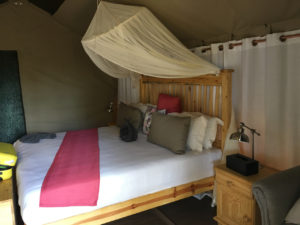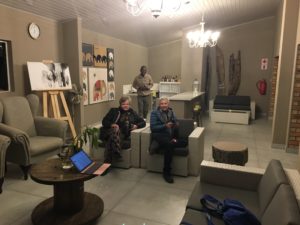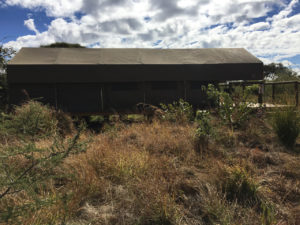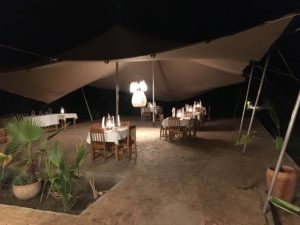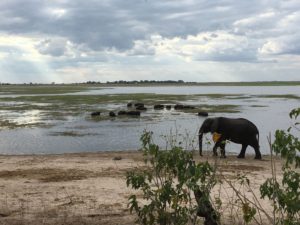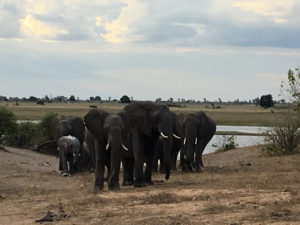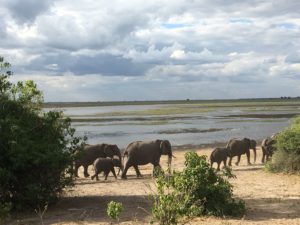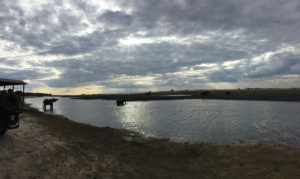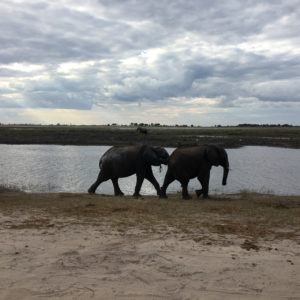Loud animal screams of pain and outrage tear through my tent in the middle of the night. Three or four times, separated by a few minutes each, I hear these and other snorting and shuffling sounds and my sleep-addled brain has no idea what kinds of creatures these are so close to my tent. The wind has picked up and whips the canvas flaps but I am snug in my bed with a hot water bottle by my side. I have comfort in the knowledge that there is an electric fence surrounding this property and a watchman as well.
We are the only guests at this brand new safari camp, Tlouwana, which means baby elephant. Three of us and a staff of about 8. Beautifully designed and decorated, very large canvas tents (about 14 feet by 25 feet with a large bathroom area), hot water, and, since they are just getting organized and don’t know what to charge, free laundry service. Food made to order for our varied diets, quite delicious and plenty of it. A beautiful pool and fast internet. But it is cold in the tents at night and we three were never sturdy girl scouts.
Yesterday morning, it rained for about 45 minutes, something that very rarely happens this time of year. We were told it is part of the cold front moving up from Cape Town, South Africa, which saw snow on the ground a few day ago. It is overcast with the sun sneaking through and heating the ground in brief periods. Solar energy is a natural fit here and it is being used more and more in rural areas. Our hot water and lights are run on the solar panels behind each tent although direct lines are used for the kitchen. I am surprised to learn that our bathing water comes from the municipal source where it has been purified as it must come a long distance to this place. The staff are warm and wonderful but we are uncomfortable having them stand around to serve us.
We took a river boat safari one morning, on the Chobe River, known as the Zambezi River as it crosse into Zimbabwe a short distance away. Through the green reeds and around the edge of the brown parkland sloping down to the water, we see waterbuck, crocodiles, many hippos (hippopotami?), some a little too close for comfort, rock and water monitors, and many different kinds of water birds. Due to the unusual wind, the water was choppy as we sped over an area usually smooth as glass.
On an evening safari into the Chobe National Park, there are great herds of elephants with many babies, coming down to the water to drink. There are actually too many elephants for this land area and it is an issue confronting the park conservationists. These large mammals mix with the delicate impala and puku, another form of antelope. But what stands out for me on this part of our journey is the fading light filtering through the clouds, creating rays of sunshine over the water, cutting the dark with pink light as the sun goes down.
Birds are singing as I sit outside my tent writing this late morning, umbrella trees in the background and a smell of grassland and clean air. I am writing on my computer but I think of the generations of people coming to and visiting this land who sat by oil lamps and wrote long letters home in their beautiful cursive script describing the fantasy animals and plants which they have learned about for the first time in this part of the world. They were undoubtedly more astounded by the diversity they found in Southern Africa than I have been but I am still surprised by both the yellow brittleness of the environment and at the same time by the great fecundity needed to feed the predators and the voluptuous plant life required to nourish the many large herbivores that roam these rivers and plains.

